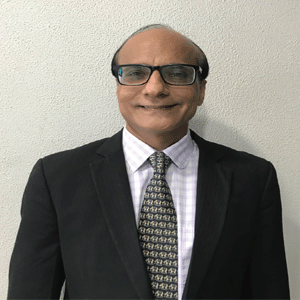
There is a continued need for new options and better outcomes for patients. Hence, it is important to develop new medicines to help more patients and healthcare systems globally with innovative and transformative whole disease solutions. Committed toward the same is AstraZeneca, a company that pioneers new approaches to engagement in the clinic and beyond to deliver a better patient experience and improved outcomes. “We are a patient-centric organization. Our focus has been on engaging with patients to deliver awareness and help them take an informed decision towards both prevention and better management”, says Dr. Anil Kukreja, VP, Medical Affairs and Regulatory at AstraZeneca.
The company has curated a platform with Business Sweden called ‘The India-Sweden Healthcare Innovation Centre’, which is envisioned to develop an ecosystem of open innovation that start-ups and the healthcare delivery stakeholders can use to collaborate and address current and future challenges in the healthcare sector in India. This platform will enable development and scale up of solutions through frugal innovation for affordable and accessible healthcare in line with the objectives of the Government of India. It is a tripartite collaboration between the Swedish Trade Commissioner’s Office, All India Institute of Medical Sciences, New Delhi and Jodhpur including AstraZeneca as knowledge partners.
“We recently launched an initiative called 'Project Chariot' to help diagnose and treat patients with
Chronic Lymphocytic Leukemia (CLL) in India”, says Dr. Anil. Through this initiative, the company aims to help identify and support the CLL reference laboratories (CRLs) in strategic locations across India and connect peripheral hospitals with their closest CRL and expand the test access to CLL patients across the country.
“We have also joined hands with a health-tech startup, Tricog, to roll out another programme called ‘Project HeartBeat’ this year, for early and accurate diagnosis of patients with heart attacks”, adds Dr. Anil.
Spearheading the War against Covid-19
AstraZeneca in collaboration with Oxford was at the forefront against Covid-19 with its Covid Shield vaccine. The company’s AZD 7442, was also the only long-acting monoclonal antibody cocktail against COVID-19 that received emergency use approval for prevention of COVID-19 in high risk Immunocompromised people in the United States recently.
“As we continue to develop more ways to tackle COVID-19, we can foresee a future where LAAB therapies would complement vaccines to protect vulnerable people against the disease and help manage the condition in those infected with the virus”, adds Dr. Anil.
“The company’s AZD 7442, was also the only long-acting monoclonal antibody cocktail against COVID-19 that received emergency use approval for prevention of COVID-19 in high risk Immunocompromised people in the United States recently.”
Further, in 2010 AstraZeneca launched the Young Health Programme (YHP) to improve the health and life chances of young people in some of the most under-resourced communities around the world. Locally, here in India, the company is working with Plan International, an NGO to fight the myths and stigma around NCDs. Over the past decade, YHP has directly reached more than 460,000 young people with health information and trained more than 7,800 peer educators, healthcare workers and supported the growth and development of young health advocates through mentorships, counseling, scholarships and more. On World Cancer Day 2019, the company also partnered with the Indian Cancer Society and the Charities Aid Foundation, India, to facilitate Early Cancer Screening and Awareness Programme for women, especially in areas with constrained healthcare access.
“We continuously explore partnerships with public health institutions such as the hospitals run by Employee State Insurance Corporations & Central Government Health Scheme (CGHS) to codevelop innovative solutions such as 'metabolic management centers', 'asthma exacerbation clinics' and 'skill enhancement curriculums' for doctors and paramedics for improving patient outcomes”, concludes Dr. Anil.
We use cookies to ensure you get the best experience on our website. Read more...